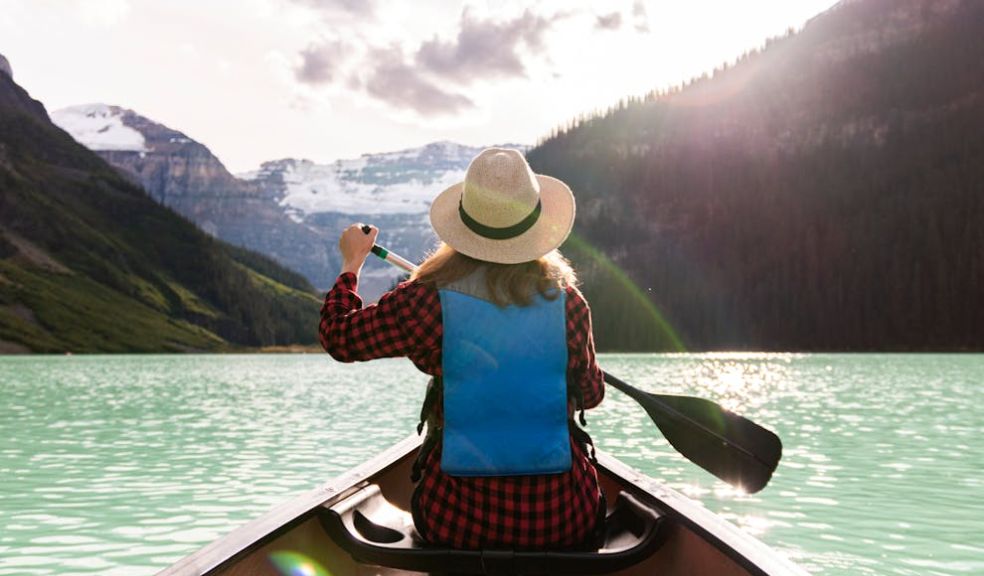
Outdoor Adventures: Hiking Trails, Nature Reserves and Wildlife Watching
There's a reason why the call of the wild resonates so deeply. Outdoor adventures offer an escape from the everyday, a chance to reconnect with nature's beauty and rejuvenate the soul. Imagine crisp mountain air filling your lungs as you conquer a challenging hike, the tranquility of a nature reserve teeming with diverse wildlife, or the awe-inspiring sight of a majestic creature in its natural habitat. This guide equips you to embark on unforgettable outdoor adventures, focusing on exploring hiking trails, nature reserves, and the wonders of wildlife watching.
Consider renting a car for ultimate flexibility in exploring remote areas and hidden gems. Many national parks and nature reserves have limited public transportation options, and a car rental allows you to create your own personalized itinerary.
Why Connect with Nature? The Power of the Outdoors
Beyond the breathtaking scenery and physical challenges, outdoor adventures offer a multitude of benefits:
- Stress Reduction: Immerse yourself in the calming embrace of nature. Studies show that spending time outdoors lowers stress levels and promotes feelings of well-being.
- Physical Activity: Hiking and exploring nature reserves provide a healthy dose of exercise, invigorating your body and mind.
- Appreciation for the Environment: Witnessing nature's wonders firsthand fosters a deeper appreciation for the environment, encouraging sustainable practices.
- Unforgettable Memories: Create lasting memories with friends and family as you embark on shared outdoor adventures.
Planning Your Outdoor Adventure: Laying the Foundation for Success
A. Selecting Destinations: Where Will Your Wild Heart Take You?
The world is your wilderness playground! Consider your preferences:
- Mountains and Forests: For breathtaking vistas and challenging hikes, explore renowned mountain ranges or sprawling national parks.
- Coastal Delights: Hike along scenic coastlines, explore tide pools teeming with life, or kayak through serene waterways.
- Unique Ecosystems: Immerse yourself in diverse landscapes, from deserts and wetlands to volcanoes and rainforests.
Research destinations that resonate with your interests and fitness level.
B. Researching Like a Pro: Hiking Trails and Nature Reserves
Once you've chosen your destination, delve deeper! Research hiking trails and nature reserves online, utilizing resources like park websites, travel blogs, and hiking apps.
- Trail Difficulty: Evaluate your hiking experience and choose trails that match your skill level.
- Trail Length and Duration: Consider the length of the hike and estimated completion time to ensure it aligns with your available time and physical capabilities.
- Nature Reserve Highlights: Research the flora and fauna of the reserve to understand what wildlife you might encounter.
C. Weather or Not? Checking Conditions and Seasonal Considerations
Weather plays a crucial role in any outdoor adventure. Before you set off, check weather forecasts for your chosen location and plan accordingly. Be aware of:
- Temperature extremes: Pack appropriate clothing to stay comfortable and safe in hot or cold weather.
- Rainfall: Plan your hike for clear skies or be prepared for rain with waterproof gear.
- Seasonal variations: Research the best times to visit specific destinations, considering factors like wildlife migration patterns or wildflower blooms.
D. Packing Essentials for Outdoor Excursions: Be Prepared to Conquer the Wild
Packing the right gear is essential for a safe and enjoyable outdoor adventure. Here are some must-haves:
- Comfortable Clothing and Sturdy Footwear: Dress in layers to adapt to changing temperatures. Choose sturdy hiking boots with good ankle support.
- Hydration Pack and Snacks: Stay hydrated by carrying plenty of water. Pack nutritious snacks to replenish your energy throughout the hike.
- Navigation Tools: A map, compass, or GPS device is crucial for staying on track, especially in remote areas.
- First-Aid Kit: Be prepared for minor injuries with a basic first-aid kit.
- Sun Protection: Pack sunscreen, sunglasses, and a hat to shield yourself from the sun's rays.
Discovering Nature Reserves: Preserving Our Natural Heritage
A. Nature's Sanctuaries: The Importance of Nature Reserves
Nature reserves are designated areas protected for their ecological significance. They serve as vital sanctuaries for diverse plant and animal life, playing a critical role in:
- Biodiversity Conservation: Nature reserves provide safe havens for endangered species and threatened ecosystems.
- Habitat Protection: These protected areas offer critical breeding grounds and migration corridors for wildlife.
- Scientific Research: Reserves create valuable living laboratories for scientists studying ecology, conservation, and climate change.
By visiting responsible nature reserves, you contribute to their conservation efforts and ensure the continued protection of our planet's natural wonders.
B. Exploring Diverse Ecosystems: A World of Wonder Awaits
Nature reserves encompass a vast array of ecosystems, each with unique characteristics and inhabitants. Here are a few examples:
- Forests and Woodlands: Immerse yourself in the serene beauty of towering trees, explore diverse plant life, and listen to the symphony of birdsong.
- Wetlands and Marshes: Teeming with life, these freshwater ecosystems provide critical habitat for a variety of birds, amphibians, and aquatic plants. Observe wetland birds like herons and egrets, or witness the fascinating adaptations of wetland plants.
- Coastal Habitats: Explore dynamic coastlines, discover tidal pools teeming with marine life, or witness nesting colonies of seabirds.
Nature reserves offer opportunities to experience the wonders of different ecosystems firsthand, fostering a deeper appreciation for the delicate balance of our planet.
C. Activities in Nature Reserves: Beyond the Hike
Nature reserves offer more than just hiking trails. Here are some ways to enrich your exploration:
- Birdwatching: With their vibrant colors and calls, birds are a delight to observe. Learn about local bird species and hone your birdwatching skills in these designated havens.
- Botanical Exploration: Uncover the fascinating world of plants. Join guided nature walks or explore independently, identifying unique flora and learning about their ecological roles.
- Environmental Education Programs: Many nature reserves offer educational programs for visitors of all ages. Participate in workshops, guided tours, or lectures to gain a deeper understanding of the reserve's significance and the importance of conservation.
Wildlife Watching: Ethical Encounters with Nature's Wonders
A. Observing with Respect: Best Practices for Responsible Wildlife Watching
Wildlife watching is a magical experience, but it's crucial to prioritize the well-being of the animals. Follow these principles to ensure responsible wildlife viewing:
- Minimize Disruption: Maintain a safe distance from animals and avoid loud noises or sudden movements.
- Respect Their Habitat: Stay on designated trails and avoid disturbing vegetation or nesting sites.
- Leave No Trace: Pack out all trash and minimize your impact on the environment.
By following these guidelines, you ensure a positive experience for both yourself and the wildlife you encounter.
B. Identifying Common Wildlife Species: Knowing Your Wild Neighbors
Knowing what to look for enhances your wildlife watching experience. Here are some common groups to keep an eye out for:
- Birds: From soaring eagles and colorful songbirds to majestic owls and elusive waders, the diversity of birds in nature reserves is awe-inspiring.
- Mammals: Depending on the location, you might encounter deer, rabbits, foxes, or even larger mammals like bears or wolves. Observe their behavior from a safe distance and appreciate their role in the ecosystem.
- Reptiles and Amphibians: Look for snakes basking in the sun, turtles sunning themselves on logs, or frogs hiding amongst the reeds. Observe their unique adaptations and appreciate their contribution to the food chain.
C. Enhancing Your Wildlife Encounters: Tips for Unforgettable Sightings
1. Time of Day and Season: Research the best times to observe specific wildlife. Many animals are most active at dawn or dusk, while others hibernate in winter.
2. Utilizing Observation Tools: Binoculars and spotting scopes allow you to see wildlife from a safe distance without disturbing them. These tools enhance your viewing experience, enabling you to observe details you might otherwise miss.
3. The Art of Quiet Observation: Be patient and practice quiet observation techniques. Move slowly and blend into the surroundings to increase your chances of spotting wildlife.
Capturing Memories and Conservation Efforts: Leaving a Positive Trace
A. Documenting Wildlife Sightings and Nature Experiences
Your outdoor adventure isn't complete without capturing memories! Here's how:
- Photography: Take stunning photos of landscapes, wildlife encounters, and unique flora. Remember to adjust your camera settings for different lighting conditions and zoom in to capture details.
- Journaling: Record your observations, thoughts, and feelings throughout your trip. Jot down details about wildlife sightings, interesting plant life, or the emotions you experienced while exploring nature.
These documentations become cherished keepsakes, allowing you to relive your adventure and share it with others.
B. Advocating for Conservation and Sustainable Outdoor Practices
Beyond capturing memories, consider your impact on the environment. Here's how to be a responsible outdoor advocate:
- Support Conservation Efforts: Research and support organizations dedicated to wildlife conservation and habitat protection. Donate or volunteer your time to make a difference.
- Leave No Trace: Always adhere to Leave No Trace principles. Pack out all trash, minimize campfire impact, and respect wildlife habitats.
- Educate Others: Share your knowledge and experiences with friends and family. Encourage them to adopt sustainable outdoor practices and advocate for conservation efforts.
By taking these steps, you become an ambassador for the natural world, inspiring others to explore responsibly and protect our planet's precious ecosystems.
C. Sharing Experiences and Inspiring Others to Connect with Nature
The magic of outdoor adventures multiplies when shared! Here's how to inspire others:
- Social Media Sharing: Post captivating photos and videos of your experiences on social media platforms. Share tips, highlight responsible practices, and use relevant hashtags to connect with a wider audience.
- Travel Blogs and Forums: Write blog posts or participate in online forums dedicated to outdoor adventures. Share detailed accounts of your hikes, nature reserve visits, and wildlife encounters. Offer valuable insights and inspire others to embark on their own outdoor journeys.
By sharing your experiences, you become a source of inspiration for others, encouraging them to step outside, explore the wonders of nature, and develop a deeper appreciation for our environment.
Conclusion
Nature beckons with breathtaking landscapes, diverse wildlife, and the promise of rejuvenation. Lace up your hiking boots, grab your backpack, and embark on an outdoor adventure. Explore new trails, encounter fascinating creatures in their natural habitat, and reconnect with the magic of the wild. Remember, the greatest adventure is often the journey itself – a journey of discovery, exploration, and a deeper appreciation for our remarkable planet.
So, what are you waiting for? Get out there and explore!
Author’s Bio:
Marjorie Hajim has talent in writing and combines her passion for storytelling with her marketing expertise. She works as an SEO Manager at Alpha Car Hire, a leading car rental company in Brisbane Airport, where she creates engaging articles to highlight their services. Besides her work, Marjorie enjoys spending time with her beloved dogs and immersing herself in compelling literature.
















